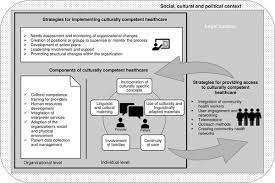Which Criterion Limits Access To Health Care?

Are Which Criterion Limits Access To Health Care? you aware of the criterion that determines who gets access to health care and who doesn’t? Unfortunately, not everyone has equal access to health care. There are certain limitations in place that can make it challenging for individuals with limited resources or specific conditions to receive proper medical attention. In this blog post, we will explore some of the key criteria that control access to healthcare and how they affect different groups of people. So let’s delve into this topic together and learn more about what stands between us and quality healthcare!
The Three Criteria Used to Limit Access To Health Care
There are three criteria used to limit access to health care: socioeconomic status, location, and ability to pay.
Socioeconomic status is the most important criterion because it affects a person’s ability to get the health care they need. People who are in poor socioeconomic conditions have less access to quality health care than people who are in better circumstances. This is because they cannot afford to pay for the health care they need, or they do not have insurance that covers medical expenses.
Location also plays a role in how accessible health care is. Certain areas of the country are more likely than others to have limited access to medical facilities and doctors. Poor and rural areas often have shortages of both medical personnel and resources, which means that patients may have difficulty getting the treatment they need.
Last, ability to pay is also important when it comes to accessing quality health care. Some people can only afford limited amounts of money each month for doctor visits or medication costs, while others can pay full price without problem. This means that some people are more likely than others to be able to get the treatment they need.
The Impact of the Criteria on People Who Need Care
The criteria have a significant impact on people who need care. For example, people with mental illness are often not able to meet the “serious health condition” requirement because their symptoms do not meet that standard. In addition, people with chronic conditions, such as diabetes or heart disease, may not be able to meet the requirement that their condition be serious enough for a hospital stay.
People who need care also can face barriers when trying to access care. For example, they may not have insurance or they may not be able to afford the costs of care. They may also lack transportation or access to necessary medical equipment or services.
How the Criteria Affect the Lives of Patients and Their Families
The criteria used to determine which patients are eligible for health care can have a profound impact on their lives. A patient may be denied coverage based on a pre-existing condition, for example, which could mean that they cannot access healthcare until the condition is treated. Additionally, some patients may not be able to afford the required co-payments or premiums, meaning that they are unable to receive necessary medical treatment. In fact, according to a report by the National Women’s Law Center (NWLC), as many as one in five women experience difficulty accessing health care because of costs.
The NWLC has called for an overhaul of the Affordable Care Act (ACA), which would create universal healthcare coverage through a single payer system. Such a system would eliminate the need for patients to worry about qualifying for coverage or paying fees associated with accessing healthcare.
Conclusion
The debate over access to health care has been Which Criterion Limits Access To Health Care? ongoing for years. Some argue that everyone should have the right to healthcare regardless of their income, while others believe that certain people should not be able to receive health care because they Which Criterion Limits Access To Health Care? cannot afford it. The question then becomes, what limits access to health care? Do wealthy individuals have a constitutional right tohealthcare while the majority of people do not? Or is there another way to achieve equal access without taxing the wealthy more heavily? Let us know your thoughts in the comments below!


![[silent war] taming a tsundere](https://newsipedia.com/wp-content/uploads/2024/04/download-20-1.jpeg)

